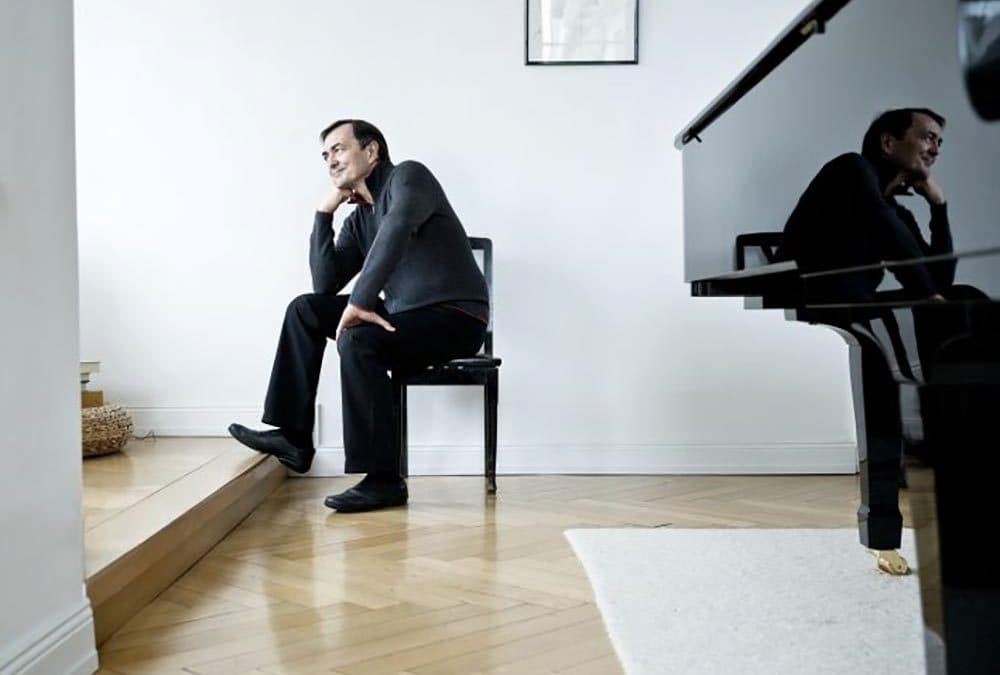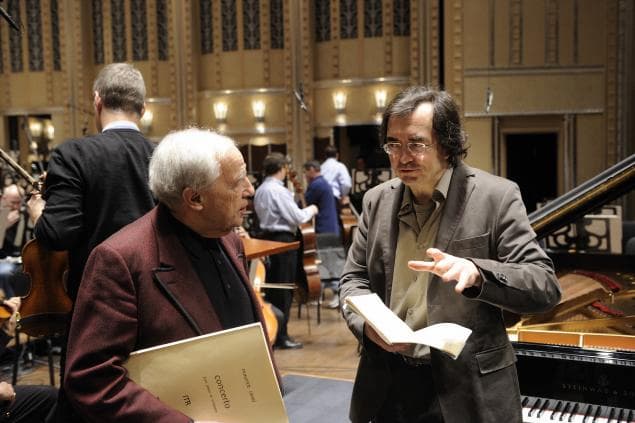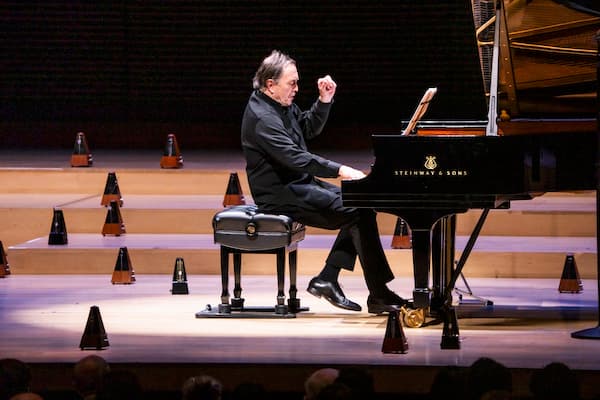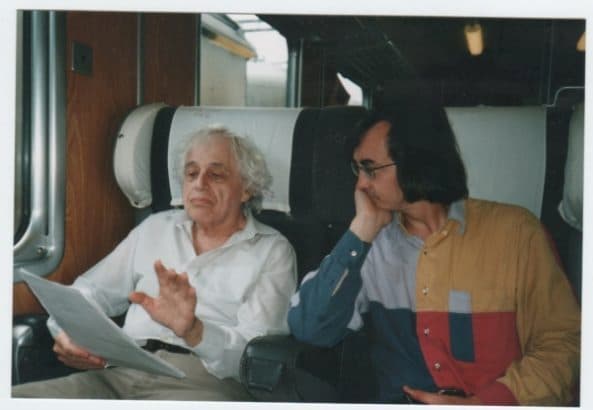Pierre-Laurent Aimard is described as “a brilliant musician and an extraordinary visionary.” A celebrated interpreter of the standard repertoire, he is also a key figure in contemporary music. Throughout his remarkable career, he has been the pianist of choice of leading contemporary composers as collaborator and interpreter, among them Messiaen, Ligeti, Boulez, and Stockhausen. Aimard is also highly interested in computer and techno music, which he incorporated in a sequence of concerts he organised in the Châtelet, Paris, in 1999–2000.
Pierre-Laurent Aimard Plays Ligeti’s Musica Ricercata No. 7
Exciting Childhood

Pierre-Laurent Aimard
Pierre-Laurent Aimard was born in Lyon, France, on 9 September 1957, as the child of two neuropsychiatrists. He grew up in a culturally enriching environment, and his mother gave him art history courses before they took family trips. It was clear from the beginning that Aimard was special. He was a precocious infant pianist, although he insists that “I was never a Wunderkind.” Aimard does concede, however, that that is exactly how he was perceived.
His parents sent him to an experimental teacher, and Aimard’s musical vista was cast correspondingly wide. He quickly felt as at home with the 20th century as with Baroque, and he was playing Schoenberg at eight. “I was passionately curious about his music, and I loved new music on the page, I read it as I read novels.” He spent his entire allowance on musical scores, “first it was Beethoven’s string quartets, then Boulez’s Second Sonata, then a succession of increasingly complex works.”
Pierre-Laurent Aimard Plays Beethoven’s Piano Sonata F minor, Op. 57 (Appassionata)
Musical Vistas

Pierre Boulez and Pierre-Laurent Aimard
As he explained in an interview, “I was eight or nine when I developed an interest in contemporary music. I was a very young listener, so I couldn’t understand a lot for sure. But I was very impressed, and I felt that this music would play an important role in my life.” Aimard grew up in the early 1960s, with the music of Boulez, Stockhausen, and many others. As he recalled, “They were not inevitable landmarks at that time, they were young, dangerous avant-gardists.”
Concurrently, Aimard was also educated in the tonal musical language and Classical music. “Beethoven was one of the first music I listened to, loved and played”, he explained, “so the fact that I played more recent music doesn’t mean that it would be more strange for me or like a foreign language.” From an early age, Aimard wanted to create a distinct sound for every composer he played, from Mozart to Bartók, “whether people liked it or not.”
Claude Debussy: Images – Book 1 (Pierre-Laurent Aimard, piano)
Messiaen

Aimard entered the Paris Conservatoire at the age of 12 and studied with Yvonne Loriod. She had only recently been married to Messiaen, and the couple had no children. As Aimard remembered, “They were marvellously generous with me. They took me on tours, to rehearsals, and classes. When I was a very young man, I could hear Messiaen improvising, and he held extra classes for me, analysing the pieces I was playing. It was a musical dream.”
Aimard greatly admired and appreciated Messiaen’s ability to hear and to get to know the people he met. “That” according to Aimard, “made him such a great pedagogue. He had a way of being able to have the patience and the ability to understand others and to have the transparency for reading the soul of somebody just by being here. He was very exceptional.”
Pierre-Laurent Aimard Plays Messiaen’s Cataloque d’oiseaux, “L’alouette lulu”
Ligeti

Ligeti and Pierre-Laurent Aimard
In 1973, Aimard was awarded the chamber music prize of the Paris Conservatoire, and he won first prize at the international Olivier Messiaen Competition in the same year. At the age of 19, Aimard was invited by Boulez to become a solo pianist with the Ensemble InterContemporain. He has performed and recorded many of Boulez’s works and, in the mid-1980s, began to collaborate regularly with Ligeti, who chose Aimard to record his complete piano works for Sony and dedicated several of his Etudes to him.
For Aimard, Ligeti is one of the greatest composers of the 20th century. “His creation is a very strong example of being in phase with his epoch while staying completely original, staying completely himself always.” Ligeti has deep and strong roots in the history of the arts and he was also looking towards the future. Aimard recalls, “If he was not satisfied, he would tell you very clearly. And even if it was not expressed diplomatically, he always had the courage to do so.” Clearly, in Ligeti Aimard had found a kindred spirit.
For more of the best in classical music, sign up for our E-Newsletter
György Ligeti: Piano Concerto (Pierre-Laurent Aimard, piano; Ensemble InterContemporain; Pierre Boulez, cond.)
